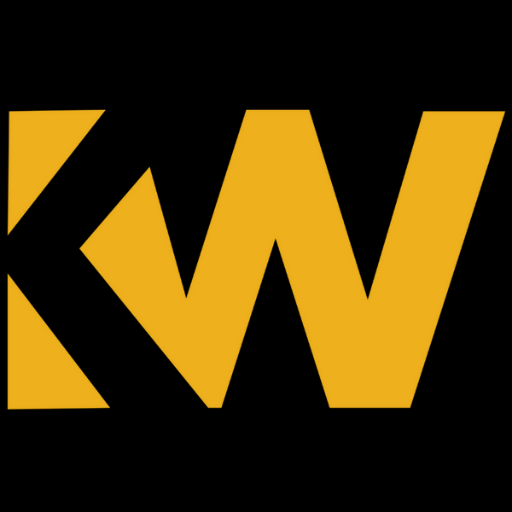PMI-(ACP) Agile Certified Practitioner
- 50,000+ Students
- Last updated 8/2022
PMI-(ACP) Agile Certified Practitioner
PMI-Agile Certified Practitioner
The PMI Agile Certified Practitioner (PMI-ACP)® formally recognizes your knowledge of agile principles and your skill with agile techniques. It will make you shine even brighter to your employers, stakeholders and peers.
The PMI-ACP® is one of the fastest growing certifications, and it’s no wonder. Organizations that are highly agile and responsive to market dynamics complete more of their projects successfully than their slower-moving counterparts — 75 percent versus 56 percent — as shown in our 2015 Pulse of the Profession® report.
The PMI-ACP is the fastest growing certification from the Project Management Institute. In its first year alone, it has overtaken the Risk, Scheduling, and Program Management certifications. It has also become the gold standard for agile competence a seen by the employers.
There are many reasons why people aim to be recognized as PMI-ACP, including the following:
High Demand: There is a high demand for agile in the past couple of years, and a certification allows employers to determine whether a project manager is knowledgeable on agile principles, techniques, and tools. The PMI developed the certification for project managers who are utilizing agile practices in their projects or for PMs who belong to organizations that adopt Agile methods to project management.
Coverage: Like other Agile certifications, PMI-ACP is not limited to a single method. Rather, it covers a broad range of agile methods (Scrum, Kanban, XP, FDD, Crystal, DSDM, etc.)
Higher Compensation: It is a given fact that people with better skills earn more than those with average. In the same way, if you have more certifications, including PMI-ACP, you also have the right to demand a higher salary. Therefore, if you want to be more financially stable in your career, obtaining such certification may prove to be necessary.
Professional Growth: In most instances, PMI-ACP is not just all about the possible monetary increase from your work. The certification program will help you to learn more about various Agile methods, and you do not need to be worried about the obsolescence of what you now. Through their certification maintenance program, you can stay updated in spite of the changes introduced in your line of work.
Job Opportunities: Having this certification will also make you a more bankable employee. In fact, employers may even be chasing you because you are highly qualified in the field of project management and other related fields. It can open up opportunities for your career advancement.
Given the benefits that have been mentioned above, there is no wonder why many people are interested in having PMI-ACP certification.
Instructors

Project Manager
This course includes:
- 35 hours on-demand video
- Full lifetime access
- Access on mobile and TV
- Free Webinar
- Certificate of completion
- 100% Pass Money Back Guarantee.
- Assessing Participant’s Profile and Advising on How PMI-ACP® Certification Can Add Value.
- Best-in-Class Program Deliverables.
- More than 97% Success Rate for First Time Exam Takers.
- 1000+ Practice Questions for (PMI-ACP)® Exam.
- Proven Learning Model based on Bloom’s Taxonomy.
- Query Handling Facility over E-mail and Phone.
- Strategy to Clear the PMI-ACP® Certification Exam at First Attempt.
- Dedicated Customer Support for PMI® Membership, PMI-ACP® Application Submission, and Exam Booking.
- Comprehensive Participant Feedback Mechanism.
About the PMI -ACP Certification
Agile is a topic of growing importance in project management. The marketplace reflects this importance, as project management practitioners increasingly embrace agile as a technique for managing successful projects. The PMI- ACP certification recognizes an individual’s expertise in using agile practices in their projects, while demonstrating their increased professional versatility through agile tools and techniques. In addition, the PMI-ACP certification carries a higher level of professional credibility as it requires a combination of agile training, experience working on agile projects, and examination on agile principles, practices, tools, and techniques. This global certification also supports individuals in meeting the needs of organizations that rely on project practitioners to apply a diversity of methods to their project management.
- 2,000 hours of general project experience working on teams. A current PMP® or PgMP® will satisfy this requirement but is not required to apply for the PMI-ACP.
- 1,500 hours working on agile project teams or with agile methodologies. This requirement is in addition to the 2,000 hours of general project experience.
- 21 contact hours of training in agile practices.
The PMI-ACP® (Agile Certified Practitioner) credential is Project Management profession’s one of the most globally recognized and respected certifications.
KnowledgeWoods works closely with PMP® aspirants worldwide to help them understand their investment from a Cost/Time perspective when they choose to prepare for PMI-ACP® Certification and how they stand to derive tangible/intangible benefits from being a PMI-ACP® Certified Professional.
Typically, there are three costs associated with the PMP® Certification:
- PMI® Membership Cost
- PMI-ACP® Training Cost
- PMI-ACP® Certification Exam Cost
The PMI-ACP® Training Cost varies on a variety of factors like location and mode of delivery – Classroom, and LIVE Learning.
Feel free to write to us at info@knowlettwoods.com with your location and preferred mode of delivery. Our PMI-ACP® Certified Experts will get back to you with the relevant details.
When you select the KnowledgeWoods PMI-ACP® Preparation Program, you will Learn:
- The Structured Approach to Manage Projects in Agile Environment
- The Important and Relevant Agile Project Management Best Practices with specific mention of Skills, Tools, Techniques, and processes
- How to leverage the KnowledgeWoods Deliverables to Pass the PMI-ACP® Exam at the First Attempt.
PMI-ACP Examination Content Outline
Domains and Tasks for PMI Agile Certified Practitioner (PMI-ACP)
Domain I: Agile Principles and Mindset – Explore, embrace, and apply agile principles and mindset within the context of the project team and organization.
Domain II: Value-Driven Delivery – Deliver valuable results by producing high-value increments for review, early and often, based on stakeholder priorities. Have the stakeholders provide feedback on these increments, and use this feedback to prioritize and improve future increments.
Domain III: Stakeholder Engagement – Engage current and future interested parties by building a trusting environment that aligns their needs and expectations and balances their requests with an understanding of the cost/effort involved. Promote participation and collaboration throughout the project life cycle and provide the tools for effective and informed decision making.
Domain IV: Team Performance – Create an environment of trust, learning, collaboration, and conflict resolution that promotes team self-organization, enhances relationships among team members, and cultivates a culture of high performance.
Domain V: Adaptive Planning – Produce and maintain an evolving plan, from initiation to closure, based on goals, values, risks, constraints, stakeholder feedback, and review findings.
Domain VI: Problem Detection and Resolution – Continuously identify problems, impediments, and risks; prioritize and resolve in a timely manner; monitor and communicate the problem resolution status; and implement process improvements to prevent them from occurring again.
Domain VII: Continuous Improvement (Product, Process, People) – Continuously improve the quality, effectiveness, and value of the product, the process, and the team.
Tools and Techniques: Knowledge of application of the various agile tools and techniques.
PMI-Agile Certified Practitioner
Toolkit
This illustrate the breadth of the toolkit, but are NOT meant to provide an exhaustive list of all techniques and tools in the toolkit
Agile Analysis and Design
Including but not limited to: product roadmap user stories/backlog story maps progressive elaboration wireframes chartering personas agile modeling workshops learning cycle collaboration games.
Agile Estimation
Including but not limited to: relative sizing/story points/T-shirt sizing wide band Delphi/planning poker affinity estimating ideal time.
Communications
Including but not limited to: information radiator team space agile tooling osmotic communications for co-located and/or distributed teams two-way communications (trustworthy, conversation driven) social media–based communication active listening brainstorming feedback methods.
Interpersonal skills
Including but not limited to: emotional intelligence collaboration adaptive leadership servant leadership negotiation conflict resolution.
Metrics
Including but not limited to: velocity/throughput/productivity cycle time lead time EVM for agile projects defect rate approved iterations work in progress.
Planning, Monitoring, and Adapting
Including but not limited to: reviews Kanban board task board timeboxing iteration and release planning variance and trend analysis WIP limits daily stand ups burn down/up charts cumulative flow diagrams backlog grooming/refinement product-feedback loop.
Process Improvement
Including but not limited to: Kaizen the Five WHYs retrospectives, intraspectives process tailoring/hybrid models value stream mapping control limits pre-mortem (rule setting, failure analysis) fishbone diagram analysis.
Product Quality
Including but not limited to: frequent verification and validation definition of done continuous integrationtesting, including exploratory and usability.
Risk Management
Including but not limited to: risk adjusted backlog risk burn down graphs risk-based spike architectural spike.
Value-Based Prioritization
Including but not limited to: ROI/NPV/IRR compliance customer valued prioritization requirements reviews minimal viable product (MVP) minimal marketable feature (MMF) relative prioritization/ranking MoSCoW Kano analysis.
Dear Participant,
When you register online/by phone/in person/by email for KnowledgeWoods E-Learning Program, you agree to abide by the following terms and conditions:
Payment Policy
- Full payment of the product is to be made via Current Dated Cheque / Demand Draft / Online Transfer / Credit Card.
- The payment has to be explicitly acknowledged by Knowlettt Learning LLP. employee over email.
- Cheque should be made in favor of “Knowlett Learning LLP” payable at New Delhi. You also have an option to pay by credit card, debit card, cheque, or wire transfer via Razorpay.
- In case, you have chosen to pay by Cheque – Your registration would be confirmed only upon successful realization of the Cheque i.e. when your cheque is cleared and we receive your funds in our account.
- In the event a Cheque is returned for insufficient funds, we will allow Two (2) Business days for you to make full payment. An additional fee of INR 500/- will be charged for each returned cheque.
Refund Policy
- There will be no refunds in any case whatsoever.
Jurisdiction – Dispute
- In case of any disputes, all laws shall be governed by New Delhi, India jurisdiction.
Validity
- The validity cannot be broken or divided into parts. This is a continuous duration and is applicable from the date of course activation.
Deliverables
- All deliverables are in electronic form and no component will be physically shipped or delivered.
E-Certificate
- On successful completion of the course, an E-Certificate shall be mailed electronically. No paper/physical shipment will be done.
- The participant can print a copy of the certificate for personal use.
Currency Conversion Charges
- While making an online payment from any other country using currency other than INR, there could be currency conversion charges levied by the bank.
- These charges are to be borne by the customer only.
Start Date or Activation Date
- The start date will not be later than 3 working days after payment is received from the customer and realized by the bank.
- In case of advance purchases, the customer will have the option of specifying the activation date at the time of registration.
Minimum Hardware/Software Requirement
- The customer has to undertake the responsibility of checking the hardware and software requirements/pre-requisites before making a purchase.
Windows – Windows XP or above ; Mac OS(Safari: 5.1.8 or later)
Browser – IE 8 or above ; Firefox 31 or later ; Chrome 29 or later
Hardware : Course supports the minimum hardware specifications for all supported operating systems.
Mobile: Android 4.1 and later ; Apple iOS 7.x, 8.x ; BlackBerry OS10
Network: Minimum 256kbps ; recommended 512 Kbps or above.
- The courses are hosted on a web server hence require internet connectivity. Please read the minimum requirement very carefully.
Up-Time – 99%
- There will be frequent outages planned for maintenance purposes. This might require patch uploads, version updates and other necessary housekeeping jobs.
- There will be scheduled downtime announced to keep the system in a healthy running state. Customer cooperation is expected in such situations.
- However, such system downtime shall not exceed 1%.
Customer Support
- Post sales, all queries regarding delivery, functionality, access or problems has to be communicated to customer support desk through email, phone or chat.
- Knowlett Learning LLP. reserves the right to amend these Terms and Conditions at any time and without prior notice.
- Agile values and principles
- Agile frameworks and terminology
- Agile methods and approaches
- Assessing and incorporating community and stakeholder values
- Stakeholder management
- Communication management
- Facilitation methods
- Knowledge sharing/written communication
- Leadership
- Building agile teams
- Team motivation
- Physical and virtual co-location
- Global, cultural, and team diversity
- Training, coaching, and mentoring
- Developmental mastery models (for example, Tuckman, Dreyfus, Shu Ha Ri)
- Self-assessment tools and techniques
- Participatory decision models (for example, convergent, shared collaboration)
- Principles of systems thinking (for example, complex adaptive, chaos)
- Problem solving
- Prioritization
- Incremental delivery
- Agile discovery
- Agile sizing and estimation
Start your learning journey today! Enroll now in our online course.
The PMI Agile Certified Practitioner (PMI-ACP)® formally recognizes your knowledge of agile principles and your skill with agile techniques
Related courses

PMP Certification - Project Management Certification

Retain Your Hard Earned PMP® Credential

PMP® Credential at KnowlettWoods!

The Theory Behind Electronics - A Beginners Guide

